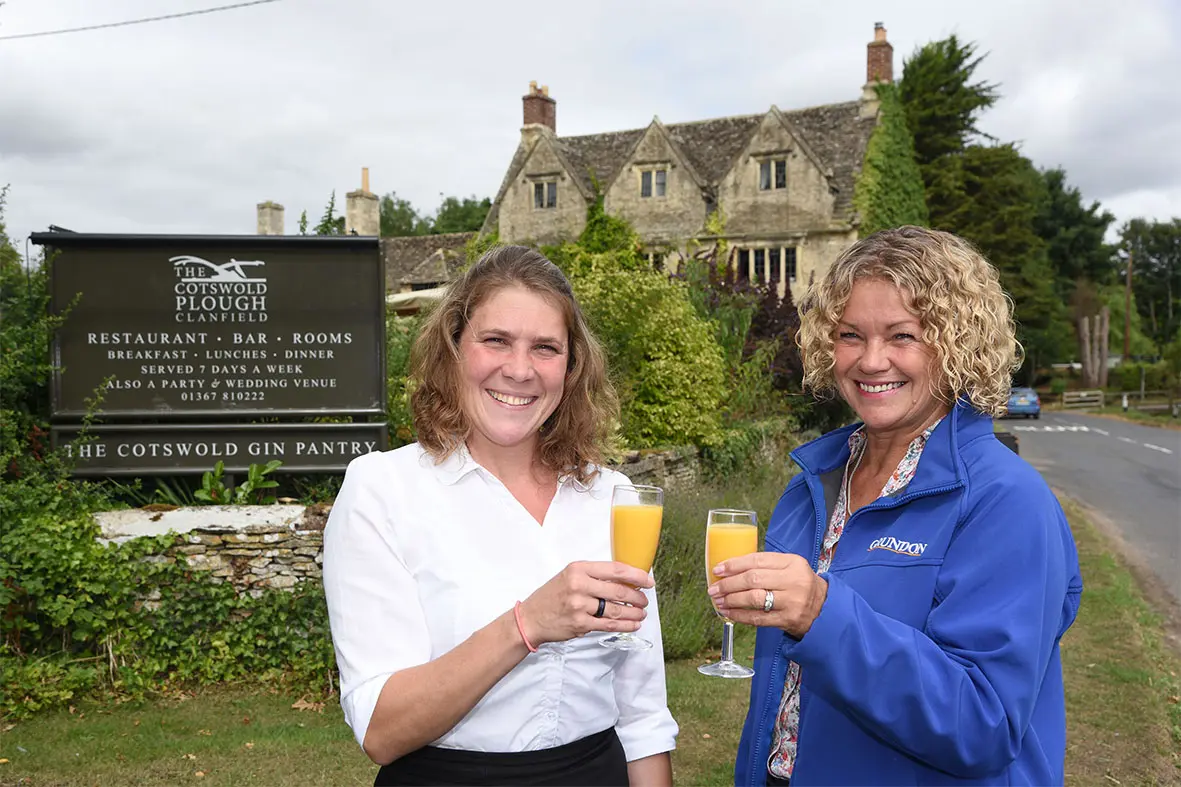Take a healthy pinch of German-style efficiency, combine with a passion for recycling, add one forward-thinking waste company, and the end result is a recipe for recycling success.
When Janka Penther arrived to take over as restaurant manager at The Cotswold Plough Hotel in Clanfield – just a stone’s throw from Downtown Abbey country in Bampton – the hotel was regularly paying a waste surcharge because its bins were too heavy.

With 11 en-suite bedrooms, a 60-seater restaurant and a bar, as well as private dining rooms available for business and family events, all hotel and restaurant waste went into four general waste bins.
The result was that their supplier, Grundon Waste Management, charged an additional fee of around £100 a week above standard costs.
“I come from Germany, where we are good at recycling, so when I arrived at the hotel in November 2017 and realised there wasn’t a recycling system, I approached the owner and asked if we could look into it,” she said.
“His concern was that it would be more expensive but when I spoke to Grundon they were very happy to help look at what we could do. I’m pleased to say that we have made a real difference. Although it is early days, we are confident we can save more money as we get better at segregation, and of course, it is better for the environment too.”
Grundon’s Tracy Richardson is known as the ‘queen of the heavy bins’, as she is often called in as a troubleshooter when customers are struggling to keep the cost of general waste down.
“When I talked to Janka, she was really excited about the possibility of introducing recycling,” said Tracy.
“We replaced three general waste bins with two 1100 recycling bins, two 240 litre glass bins, and two 120 litre food bins, and in the first four months we have seen their general waste weight go down from an average of 450kg a week to around 140kg. This change is reflected in their lower costs.
“It was a massive change for them; we helped by suggesting they start segregating waste over a trial period before the bins arrived, so they could familiarise themselves with the process, and we also provided signage for the different bins. I’m pleased to say it all happened very smoothly.”
In preparation for the changes and to help her staff understand the do’s and don’ts of recycling, Janka spent time reading up on different waste streams and which items could be recycled.
She worked closely with the restaurant manager and his team of chefs who, she says, have recognised that segregating food waste also helps them to better understand issues like portion sizes and stock control.
The hardest part was trying to visualise exactly how many different waste bins they would need, but she continued: “Tracy was very helpful and great at suggesting things, as well as giving us the flexibility to change our arrangements as time went on. For example, we realised we had underestimated the amount of glass we use, so we added a second glass container.
“We know we can still get better at segregation and we are working on it. Everyone agrees it was the right decision and I find that the younger staff in particular really care about the environment, so the fact they can see what we’re doing is really great.
“Each of us has a responsibility for managing waste and in a small hotel like this, it is very much down to the individuals to make it work. I’d like to think it should be as natural for them to recycle at work, as it is at home.”
Describing the experience as a “positive learning curve”, Janka says they are very definitely heading in the right direction and she is keen to do as much as possible to persuade her colleagues to boost recycling even more.
